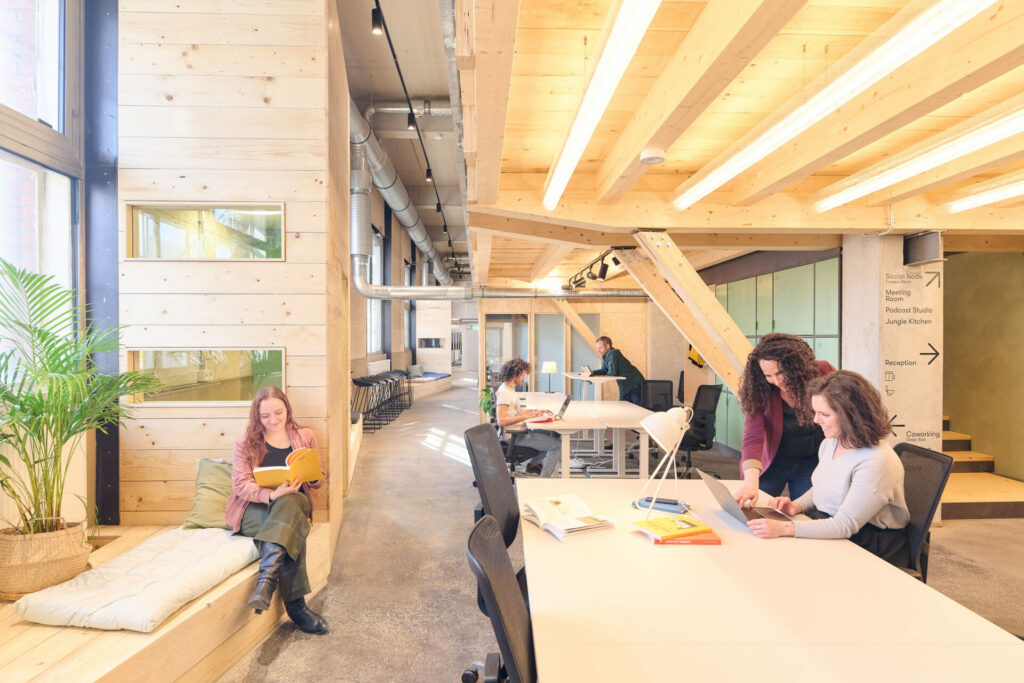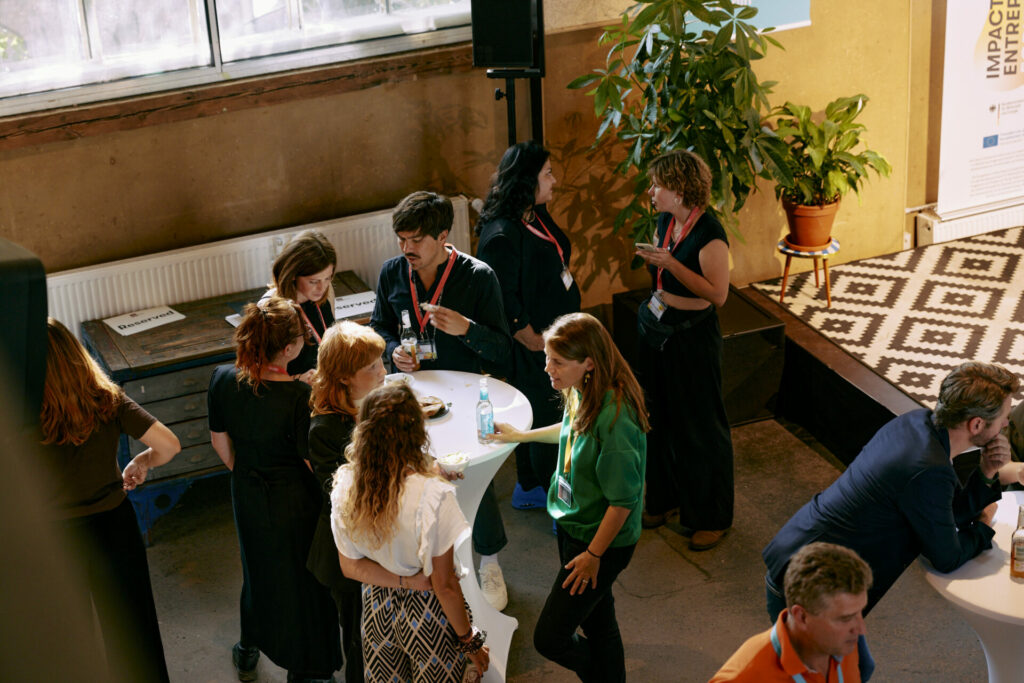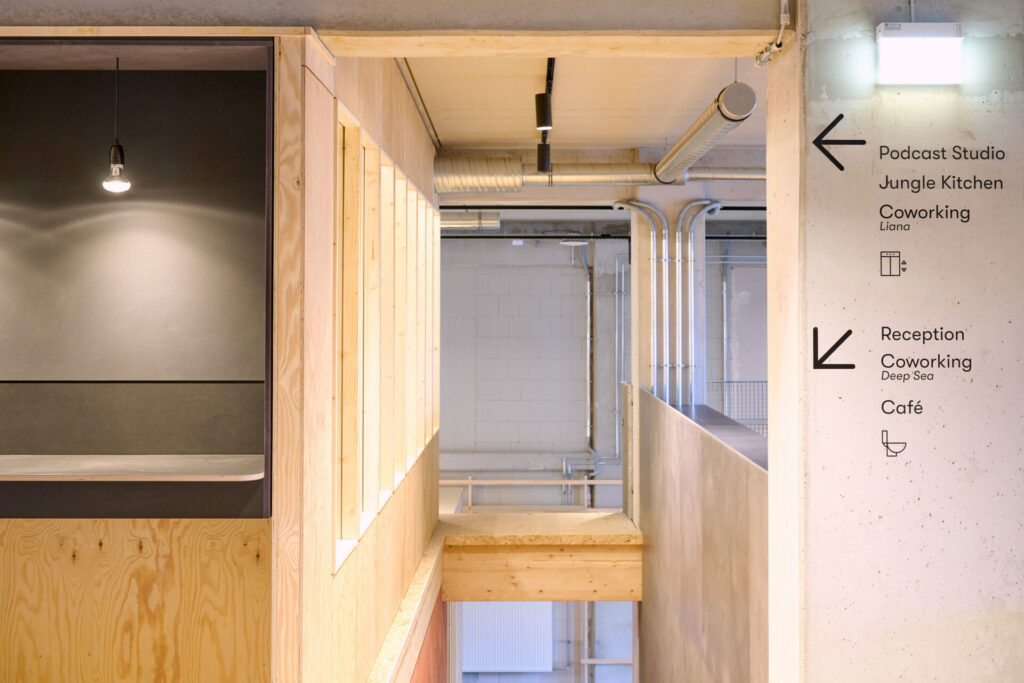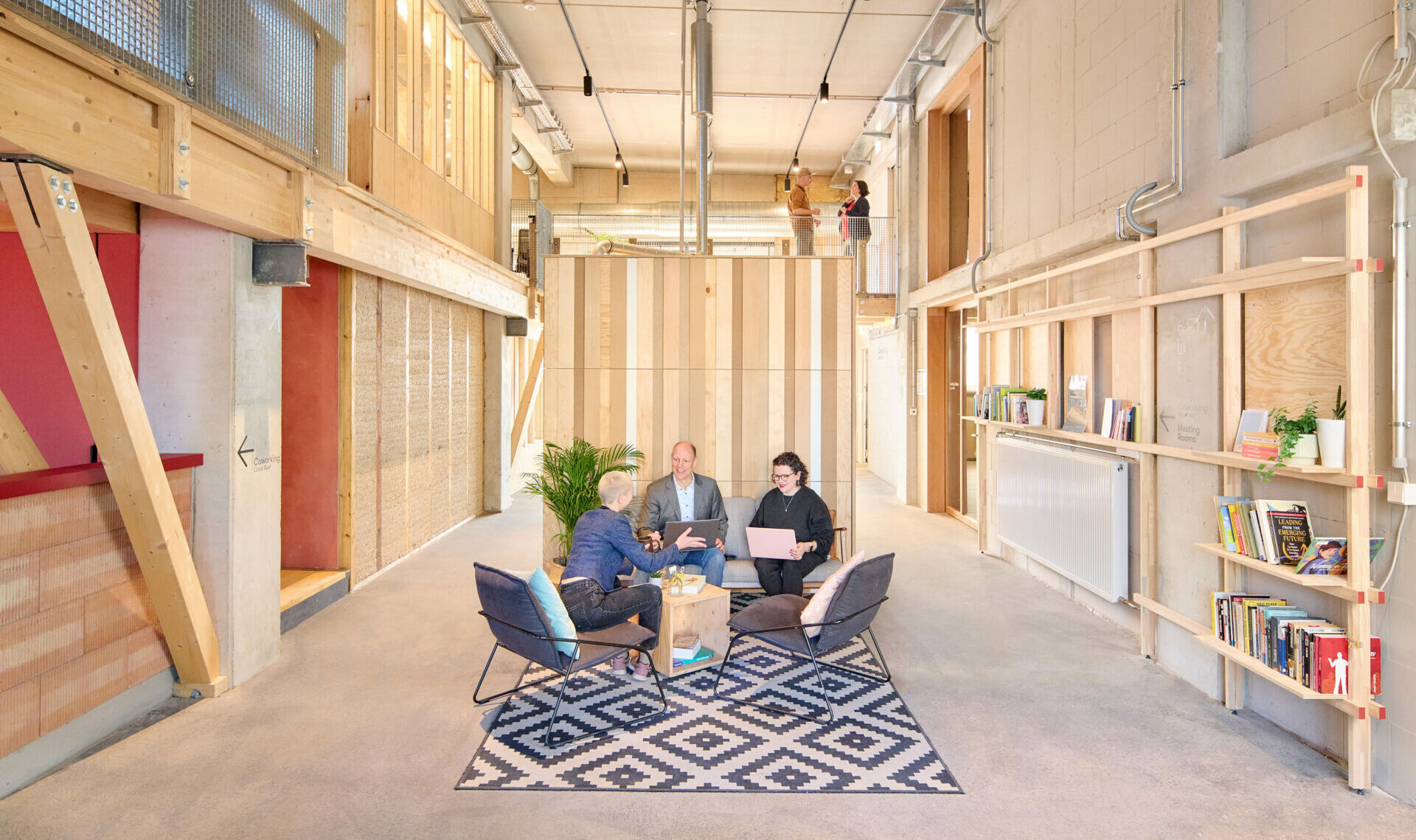The ultimate guide to coworking spaces
Coworking spaces have transcended traditional office spaces; they have become hubs of innovation and collaboration, where impact entrepreneurs and changemakers converge to exchange ideas, share resources, and co-create positive change in our world. These spaces provide more than just a physical setting, they cultivate a vibrant community of like-minded individuals united by a common purpose. Whether you’re a seasoned impact maker or just embarking on your journey, coworking spaces offer a supportive environment where innovation, sustainability, and community are at their core.
For entrepreneurs, coworking spaces can be a strategic move towards amplifying their impact. From dedicated social impact programmes to mentorship opportunities and access to specialised resources, these spaces can empower their members to realise their vision and drive meaningful change. In this blog, we’ll explore everything there is to know about coworking spaces – from how they’ve evolved to who uses them, how they benefit their members, how to make a sustainable choice, and the tips to find the right coworking space for you.

What is a coworking space?
In its simplest form, coworking is a shared space where people come together to work productively. Coworking spaces serve as hubs where changemakers find connection, motivation, and inspiration, whether at dedicated venues or unconventional locations such as a friend’s house, online, or even a childcare centre – there is an option to suit anyone and everyone.
At Impact Hub Berlin, we support what people call a “third place”, where you can enjoy social interactions with people outside of your work and home life in a communal and community-driven space. These spaces foster focus and strategies for impactful change, aligning with both professional and personal aspirations.
How innovators interact with and use a coworking space is up to them and is as varied as the physical space they choose. The concept of coworking has evolved from being simply a shared work environment towards one that is more community-driven, which has meant the way coworking members use their space has also evolved. Coworking spaces offer members a workspace but also often areas to hold events, workshops, production studios, and so much more.

Different types of coworking spaces
Innovators were finding alternate ways of working as early as 1995, with a group of computer engineers starting up a “hackerspace” – considered by many to be the first coworking space – in Berlin. The space, called c-base, was established for like-minded coders to come together and share knowledge.
Four years later the term “coworking” was coined by American game designer Bernard DeKoven, who used it to describe the collaboration between people working together as equals. This concept is now what drives most people to seek out spaces where others, who share similar values and goals, can collaborate, learn from, and evolve to effect change in our world.
But, as we’ve seen above, not everyone wants to access a space in the same way they would a traditional office space. When we talk with our own community, we can see that the way they interact with the space varies. Most members come in a few times a week and value the community lunches and social events – likely because non-work communication and socialising can increase productivity and help people feel more connected to their work (more on the benefits of coworking below).
As such, the way coworking spaces offer access has also changed. What used to be simply a membership has shifted into offshoots that cater to what each person needs from a coworking space. At Impact Hub Berlin, there are memberships for monthly access, one-day-a-month access with the option to purchase additional days, and also options to rent office space.
WHO USES A COWORKING SPACE?
A large portion of people working from coworking spaces are freelancers (about 42 per cent according to the 2019 Global Coworking Survey). We know from our community that entrepreneurs, startups, and think tanks are also likely to use coworking spaces because of the ease of access and community-building. The majority of our members are working in fields related to DEI, Green Tech, Sustainable Food, and the Circular Economy, which are the core topics we focus on to inspire and connect people. It’s this connection that draws people daring to create positive change to our award-winning coworking space in Berlin.
In a membership survey we conducted last year, we found more than 60 per cent of our members were aged between 25 and 35 and more than a third have been with us for more than a year. This leads us to why people use coworking spaces
People join a coworking space to combat feelings of isolation,
to draw inspiration from changemakers dedicated to the same values,
and to share knowledge and ideas.

Benefits of coworking spaces
As we explored above, myriad physical spaces can be established as a coworking space, but what can really set them apart is community. Being part of an active coworking community means thriving and evolving alongside other agents in your field. We know it’s something changemakers are seeking out; to find a way to come together and support each other – even invest in each other.
Being part of a community-based coworking environment can also help people stay motivated and combat the loneliness that entrepreneurs often face when striking out on their own. They often don’t have colleagues to bounce ideas off or share insights with, which can lead to self-doubt and low confidence.
We know we’re more likely to have new, creative ideas when we talk with people who aren’t in our friendship or family circle, which makes coworking spaces that much more fruitful for innovation. Add to that the ability to knowledge share and collaborate with people from diverse backgrounds and with unique insights, and you can see how beneficial community-focused coworking spaces can be. We believe community is the key benefit to coworking spaces, because innovation doesn’t happen in isolation.
In our 2022 Impact Report, Made of Air Head of Research and Innovation Oliver Gould said working at Impact Hub Berlin was important for his team’s development, both professionally but also socially. “The sheer number of passers-by and visitors to the lab gives us a sense of community-building,” he said.

Sustainability in coworking space
Sustainability has become one of the fundamental principles propelling societal change across a diverse range of sectors. According to the UN World Commission on Environment and Development, sustainability is defined as “meeting the needs of the present without compromising the ability of future generations to meet their own needs.”
This ethos is now gaining significant traction within the realm of coworking spaces, where changemakers are increasingly prioritising alignment between their values and the places they work from. From sustainable designs to social responsibility sustainability, there’s a shift in how coworking spaces are evolving to meet their community’s needs.
At Impact Hub Berlin, we’ve been committed to sustainability from the start. Our office space was built with circular design principles in mind – our space even won FRAME magazine’s “Co-Working Space of the Year” award last year thanks to the incredible collaboration with partners such as architectural studio LXSY ARCHITEKTEN. Around 70 per cent of all the materials and products used during the construction of the space a few years ago were repurposed, recycled or natural. We’ve even kept elements like our water taps and walls exposed so that the space can be changed and adapted to our needs in the future or even be repurposed after disassembly for future use.
Outside of the design, we believe a sustainable coworking space is one that not only celebrates the sustainable movement its community members are working towards, but that supports and works alongside them.
At Impact Hub Berlin, we held 9 programmes for 347 impact-driven entrepreneurs to collaborate and partner with key leaders in their sector in 2023 and made more than 1000 introductions within our community. We partner with industry experts to help entrepreneurs bring their sustainable solutions to life and hold regular events to help our community connect, collaborate, and innovate together. More fun fact and success stories are in our latest Impact Report.
COWORKING CODES OF CONDUCT
To help contribute to a positive and respectful space, it’s always good to know the best way to conduct yourself. At Impact Hub Berlin, members follow a code of conduct and we’ve gone into this in detail in an earlier blog post, but here are a few key points to consider:
Say hello! It’s always a nice idea to recognise someone in your space and be open and friendly – you never know who you’ll connect with down the track. Plus, acknowledging people can go a long way to boosting feelings of well-being.
Be mindful of others. Whether it’s being aware of a meeting room’s schedule so you don’t run over time or having a phone call away from where people are working, it’s always good to remember coworking spaces are shared spaces, and everyone has a right to work productively and in peace with each other.
At Impact Hub Berlin, we have a lot of people from very different backgrounds and cultures and so it’s best to be mindful when speaking with others. It’s good practice to ask how people would like to be addressed and how their name is pronounced. These steps can go a long way to maintaining a respectful and empathetic environment.
HOW TO FIND THE BEST COWOTKING FOR YOU
Not all coworking spaces are the same. There are a few key tips before you join a coworking space, to make sure you’re going to join a coworking community that’s right for you.
First, define what you want from a coworking space. Are you looking for a community – especially one that aligns with your values? Are you looking to network and find partnerships? Do you just need a space where you can feel productive? Knowing what you’re wanting from a coworking space is a great place to start.
Next, comes location. Find a space where you’re both comfortable to commute to and where you’d be happy to host meetings if need be.
The design and flow of a coworking space is also important to consider. If you’ll be in meetings all the time, finding a space that offers meeting rooms or phone booths is key. If you’re developing a prototype or recording a podcast, you’ll need to make sure the coworking space you join has these facilities available to you.
It also comes down to the people. Going on tours or coworking spaces can really help you get an idea not just of the space but the people who work there. You can also see if the coworking space holds regular events to see the kind of work the coworking community does and celebrates.

How Impact Hub Berlin can help you on your impact journey
If you’re looking for a community-driven space driven by circular design principles and a sustainable focus, Impact Hub Berlin is the perfect fit.
We’re a team of visionaries helping people create ways to make the world a better place. With a focus on strategic partnerships, community building, and networking, we provide tailored support, so impact innovators can succeed in building socially, financially, and environmentally sustainable businesses.
Our incubator programmes, community events, and matchmaking formats help to foster radical collaboration between startups, corporates, and public organisations to build an impact economy in service of people and the planet. We are also an event space, we offer meeting rooms and have our own plant-based, zero-waste cafe. And coffee and tea are of course open bar!
We’d love to hear from you and share how being part of our community can help improve your journey towards impactful change.